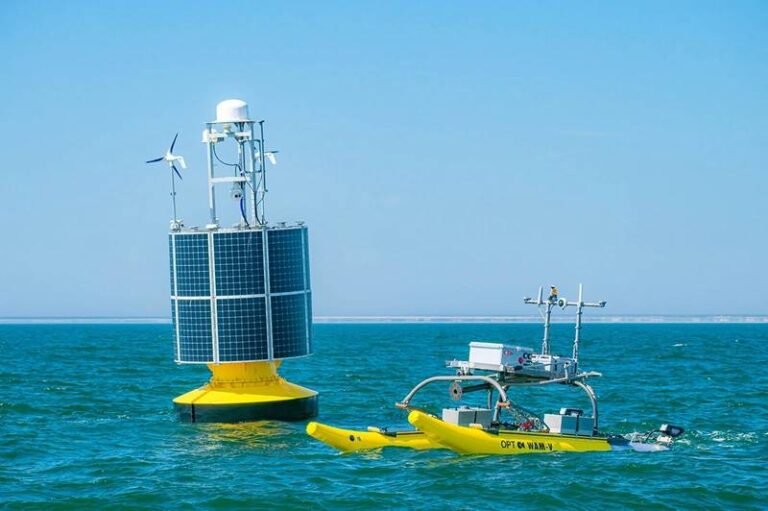Ocean Power Technologies Secures Patent for Autonomous Floating Marine Charging Solution
Ocean Power Technologies (OPT) has recently announced that it has obtained a patent from the United States Patent and Trademark Office (USPTO) for its groundbreaking autonomous, floating marine charging solution. This innovative technology is designed to cater to the growing demand for clean maritime operations by allowing electric vessels, including uncrewed surface vehicles (USVs), to locate, dock with, and recharge from a floating energy platform while at sea.
The patent encompasses a range of key features that make this solution unique, including signal-emitting guidance systems for dynamic maritime docking, flexible and secure mooring structures to stabilize vessels during energy transfer, as well as wired and wireless energy delivery mechanisms. Additionally, the patent also covers options for wave-powered self-sustaining energy generation, further enhancing the sustainability of the system.
This cutting-edge invention is at the core of OPT’s vision for scalable, intelligent offshore infrastructure. By integrating the floating charging station with the PowerBuoy platform, OPT aims to create a versatile system that can function as both a power generation node and a recharging hub. This integration will enable WAM-V AUVs to carry out extended missions with minimal downtime and without the need for shore return, significantly enhancing operational efficiency.
David Goldstein, VP of Technology and Innovation at OPT, expressed his excitement about the patent, stating, “This patent is a direct reflection of the innovation culture at Ocean Power Technologies. By enabling offshore electric charging without reliance on port infrastructure, we’re solving a real-world bottleneck to persistent, autonomous maritime operations. This technology will be a cornerstone of how our WAM-V’s operate in extended missions when paired with our PowerBuoy.”
With this latest patent approval, OPT is poised to revolutionize the way clean maritime operations are conducted, paving the way for a more sustainable and efficient future for the marine industry.

